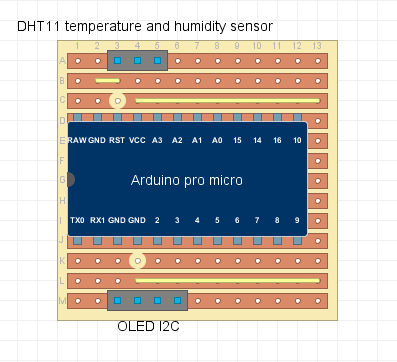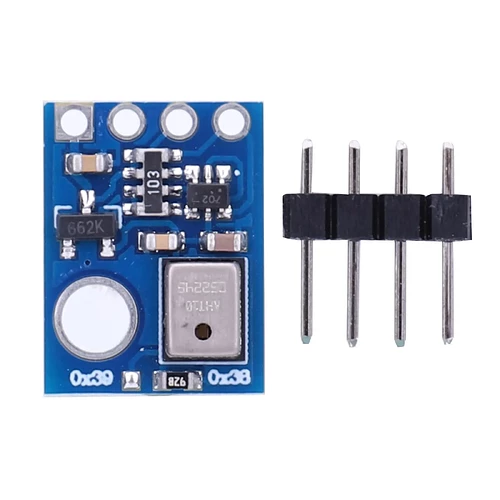Hello i need help can i solder several in my case a dht11 sensor and an oled screen to the i2c ports of the Arduino
As far as I'm aware, the DHT11 is not an I2C device.
you shure can is solder it on any data port?
You can use a normal I/O pin for the DHT11
Also, are you talking about soldering cables onto the Arduino to connect to your modules or soldering them directly to the Arduino?
i use cabels between the arduino and the modul
If you are using cables, I'd recommend that you buy a board of some sort if you are looking for something a bit more permanent than a breadboard. A Veroboard is a good choice, as they are simple to work with and will make the circuit look a little better (and maybe more durable too). If you put connectors into the Veroboard as opposed to soldering the components directly onto the board, that also means you can easily remove the components for any reason you wish, e.g. replacing the DHT11 with a DHT22 (which has greater accuracy and range). Getting hook up wire would be a good idea too, something like this
If you get Veroboard, you can then build the circuit into something like this:

thank you. where do you make this graphic
No problem! I use DIY layout creator, you can download it here.
thank you for the help
Having pins of a Pro Micro shorted might not be a good idea ![]()
That's why I said 'something like this', I created that circuit in about 2 minutes and snipped an image and didn't save the circuit, hence the board not being vertical (I didn't have much time)
That was why there was a smiley at the end ![]()
Thanks guys, I've already ordered one
Indeed, it is not i2c.
There are many temp/humidity sensors which are i2c such as sht21/31. Unfortunately, with most models, only one can be connected to the bus at any time. This problem can be solved using an i2c multiplexer, but that's not very convenient.
This type has a choice of 2 addresses, so 2 such modules can be connected to bus. Changing the address involves moving that small resistor at the bottom of the picture with a soldering iron.
Removing the resistor and soldering small wires from the pads to Arduino pins would make it possible to connect many such modules to the i2c port without the need for a multiplexer. But this is also not very convenient.
thank you is there somoene who can code
The coding part is up to you to start! If you need help, post on the forum and you'll find someone to help you
This topic was automatically closed 180 days after the last reply. New replies are no longer allowed.
